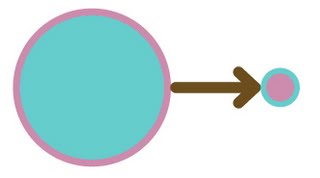Design Advantage : The Secret to Creating Long-Term Value 6 Derived from: Roger Martin’s The Design of Business
RAP4 : Design Thinking
PROFIT : Our usual logic frameworks follow the scientific traditions to determine what is true and what is false. Design Thinking takes a different course. It’s based upon what’s possible in the future and not what is true or false right now. 
Deductive logic rationalizes from the general to the specific.
If ‘a’, then ‘b’.
It reflects analytical thinking.
It aims to create proof based upon the past.
- Rigorous
- Quantitative Analysis
- Decision Support Software

Inductive logic rationalizes from the specific to the general.
It’s about making generalizations from particular cases.
It reflects intuitive thinking.
- Gut feelings
- Subjective judgements
- Bias and variation
Abductive logic parallels Design Thinking and asks ‘what could be?’
It’s based upon the belief that it’s not possible to prove any new thought, concept or idea in advance.
In other words, all new ideas can only be validated through the unfolding of future events.
Design Thinking
Roger Martin defines Design Thinking as
“the balance of analytical mastery and intuitive originality in dynamic interplay.” (P6)
Tim Brown of IDEO defines it as:
“A discipline that uses the designer’s sensibility and methods to match people’s needs with what is technologically feasible and what a viable business strategy can convert into customer value and market opportunity.” (P62)
Design Thinking is a blend of creativity and business that relies on Abductive Logic.
It’s necessary for optimal business performance.




